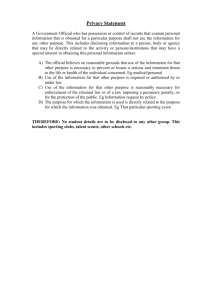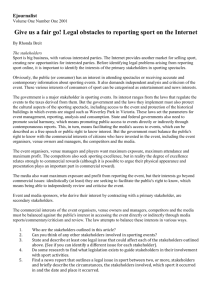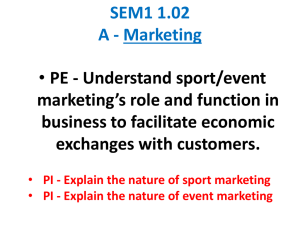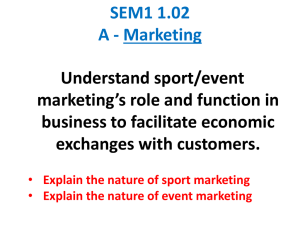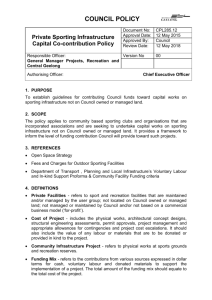Risk Management Issues in Large
advertisement
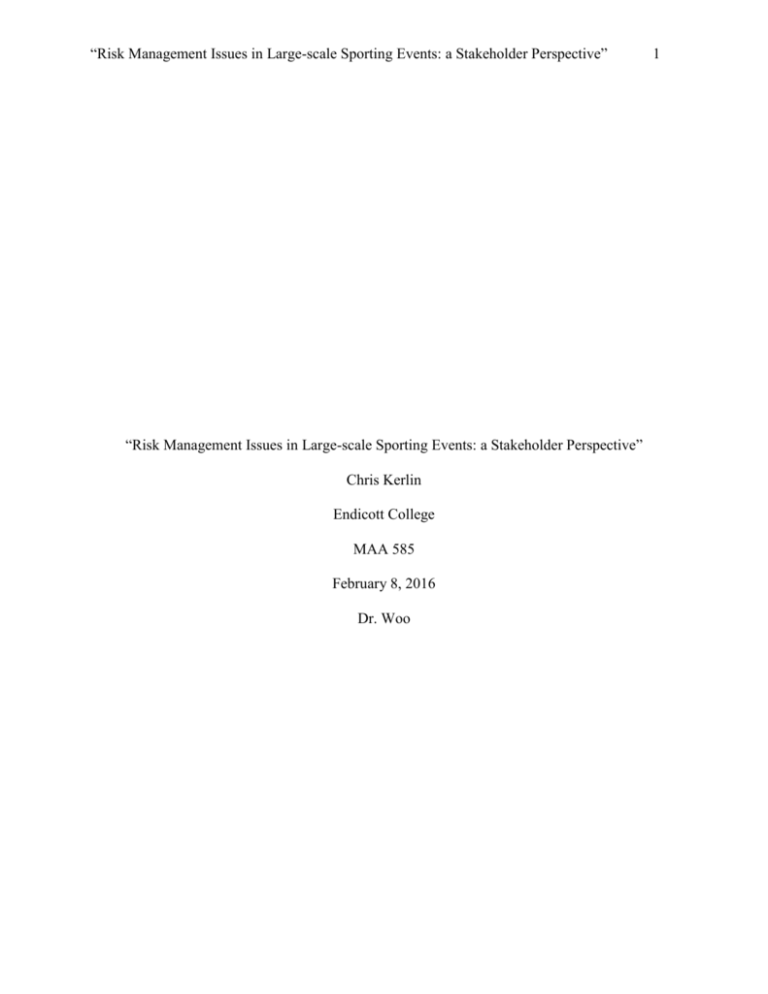
“Risk Management Issues in Large-scale Sporting Events: a Stakeholder Perspective” “Risk Management Issues in Large-scale Sporting Events: a Stakeholder Perspective” Chris Kerlin Endicott College MAA 585 February 8, 2016 Dr. Woo 1 “Risk Management Issues in Large-scale Sporting Events: a Stakeholder Perspective” 2 Since the events of September 11, 2001, risk management for large-scale sporting events has become an even more important consideration when planning and executing a successful and safe event. While there is research about the process of risk management, there seems to be a lack of research that investigates the risk management issues from the perspective of the different stakeholders involved in the event (Leopkey & Parent, 2009). Therefore, the objective of this paper is to identify the risk management issues in a major sporting event from the viewpoint of the internal and external stakeholders (Leopkey & Parent, 2009). A comparative case study was completed by looking at archival material and carrying out interviews for two large-scale Canadian sporting events. The events compared and analyzed were the 2006 International Skating Union World Figure Skating Championships and the U-20 FIFA World Cup Canada 2007. These two events were chosen based on having similar and differing qualities, which ensured a good comparative analysis (Leopkey & Parent, 2009). While collecting the data, the stakeholders were categorized into six groups to better understand the perspectives of each group. The six groups of stakeholders were the organizing committee members, sport organizations, community members, governments, media, and delegation representatives (Leopkey & Parent, 2009). This was then followed by an analysis of the archival data and interview responses for related themes with regards to risk management concepts and categories. Building on Parent’s (2008) research, which identified 13 risk issue categories, it was determined that two new issue categories should be added (Leopkey & Parent, 2009). The fifteen risk issue categories identified by the study are visibility, financial, human resources, infrastructure, interdependence, legacy, media, operations, organizing, participation, political, relationships, sport, threats, and environmental, with the last two issues being the new categories (Leopkey & Parent, 2009). “Risk Management Issues in Large-scale Sporting Events: a Stakeholder Perspective” 3 In general terms, the findings of the study showed the various stakeholders felt operational risk was the biggest area event managers need to pay attention to with regards to risk management (Leopkey & Parent, 2009). The other areas in need of attention were organizing, financial, human resources, and visibility risk issues (Leopkey & Parent, 2009). The study further breaks down the areas of concern with regards to the different perspectives of the six groups of stakeholders. These results will help future event managers to plan safe and successful events by providing the managers with a “road map” of risk issues to consider from varying perspectives. In conclusion, this study made one last important contribution to risk management theory. As the study was being completed, it was determined there is a high importance for event managers to plan for risk management throughout the preparation and hosting of an event. It is because of this, that the need for a new definition of risk management for sport events was proposed. Leopkey & Parent (2009) stated that risk management in major sport events is: A proactive process that involves assessing all possible risks to the events and its stakeholders by strategically anticipating, preventing, minimizing, and planning responses to eliminate or mitigate those identified risks, with key factors to consider including location, previous experience, staff, facilities, timing, size, politics, culture and complexity of the event. (p.205) “Risk Management Issues in Large-scale Sporting Events: a Stakeholder Perspective” 4 References Leopkey, B., & Parent, M. M. (2009). Risk management issues in large-scale sporting events: A stakeholder perspective. European Sport Management Quarterly, 9(2), 187-208. Parent, M.M. (2008). Evolution and issue patterns for major-sport-event organizing committees and their stakeholders. Journal of Sport Management, 22, 135-164.
